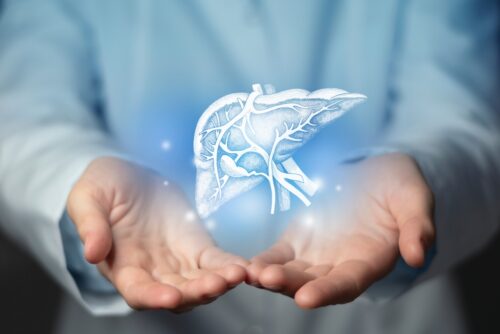Human livers are the largest internal organ, they deserve more love!
The major function of the liver
(Better Health Channel, 2020)1
- Convert carbohydrate (sugar) into glucose (simpler sugar), then convert glucose (simple sugar) into glycogen (storable form)
- Plan B when our sugar levels reduce, the liver breaks down dietary fats by bile
- Change ammonia (a toxic by-product of protein metabolism) to urea (expelled from our body by urination)
- Filter through medication, drugs and alcohol
Hepatitis
We can generally think of hepatitis as an inflammation of the liver, where the liver swells. Hepatitis can be transmitted through direct or indirect contact with blood, body fluid, or contaminated food and drink.
Watch these videos to learn more about Hepatitis.
Nutrition Considerations for Viral Hepatitis
People with complications of chronic hepatitis require medical treatment and a reasonable diet for the stability of nutrients. Depending on the metabolic state and the severity of the condition, there are specific requirements for energy, protein, carbohydrates, and lipids (fat) (Weng et al., 20202). Please speak to your medical team to get more information about this.
Hepatitis Queensland recommends maintaining a healthy, balanced dietary pattern for people living with Hepatitis B or Hepatitis C (Hepatitis QLD, 20203). It is important to note that we should not avoid a food group entirely. Our dietitian in Loganholme advised prioritising wholegrain products and limiting alcohol and high-energy foods (like deep-fried food). Also, it is not necessary to avoid caffeine (due to limited evidence). Drinking three or more cups of coffee a day has a 53% lower chance of developing liver cancer for people with Hepatitis C (Hepatitis QLD, 20203). Be extra careful with vitamin or mineral supplements, especially iron and Vitamin A (HealthLink BC, 20214).
P.S. HepLink Australia provides free and confidential support to anyone in Australia.
Some of you may already know how much our dietitian Clara loves about prevention. Find out if you are at risk of Hepatitis, especially if you experience brain fog, aches and pains and excessive tiredness.
A healthy lifestyle combining diet and moderate physical activity is very important to prevent liver diseases. Since non-alcoholic fatty liver disease (NAFLD) and obesity have common pathophysiological pathways, people with obesity are 3.5 times as likely to develop NAFLD. Studies show the Mediterranean diet, Dietary approaches to stop hypertension (DASH), Japanese diet pattern (fish-based with vegetables, fruit, grains, legumes, coffee, and tea), and traditional Chinese diet (nearly vegetarian centred with vegetables, rice, and noddle with moderate fish, poultry, and tofu intake) have been associated with a reduced risk of NAFLD (Romero-Gomez et al., 20235). All of these diets promote a reduction of ultra-processed food and increase foods with anti-inflammatory properties.



